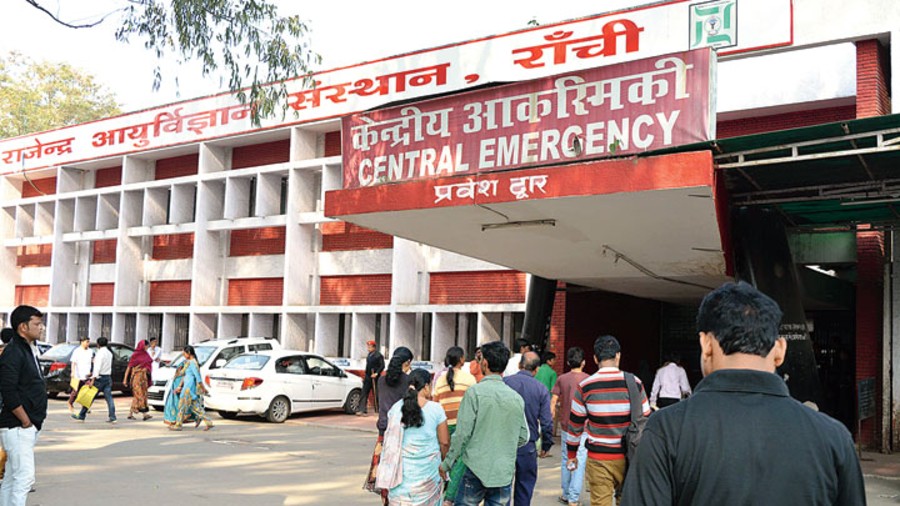Rajendra Institute of Medical Sciences (RIMS) in Ranchi has procured a COBAS 6800 machine, which is an automated device that can perform 1,200 RT PCR tests in 24 hours with minimal human intervention, doctors from Jharkhand’s premiere state-run hospital said on Thursday, claiming that this machine was the first such device to be installed in any government-run healthcare facility in the state.
“We have procured a COBAS 6800 for fast and safe RT PCR tests. The machine has arrived at our facility and it will be installed within a couple of days,” said Dr Prabhat Kumar, the coordinator of Covid-19 Task Force at RIMS.
The COBAS 6800 performs RT PCR tests with minimal need for human intervention, and therefore, reduces the chances of infection in healthcare workers while they perform tests of nasal and throat swabs collected from suspected Covid-19 patients, doctors said.
The COBAS 6800 was first introduced in India at the National Centre for Disease Control (NCDC) back in May 2020. During the inauguration of the machine, then Union health minister Dr Harsh Vardhan said that COBAS 6,800 is a sophisticated machine enabled with robotics that minimizes the chance of contamination as well as the risk of infection to the health care workers since it can be operated remotely with limited human intervention.
As the machine requires a minimum BSL2+ containment level for testing, it cannot be placed at just any facility. COBAS 6800 can also detect other pathogens like Viral Hepatitis B and C, HIV, MTb (both rifampicin and isoniazide resistance), Papilloma, CMV, Chlamydia, Neiserreia etc.
The machine will be set up at the microbiology department of RIMS. The head of the microbiology department, Dr. Manoj Kumar, was not available for a comment as he was off duty due to health reasons. However, another doctor from the department said that the machine will be extremely helpful in detecting different kinds of viruses even in future.
RIMS suffers from a shortage of lab technicians and a machine that requires minimal human intervention is expected to lower the burden on the technicians who usually work around-the-clock at the facility, sources said.
The state health department has already asked RIMS to set up a genome studies department in the facility, while the procurement of a genome sequencing machine is also likely to get a nod from the governing body of RIMS in its next meeting scheduled later this month.










